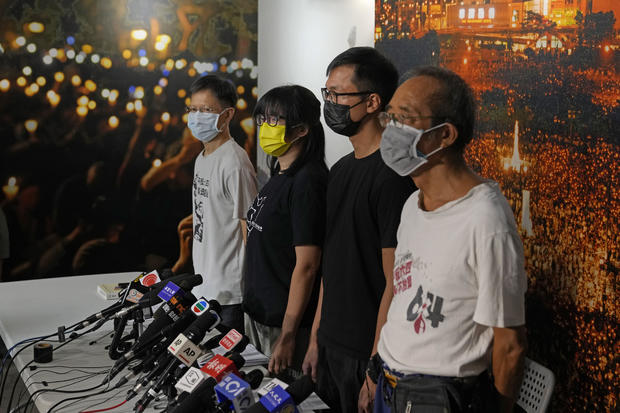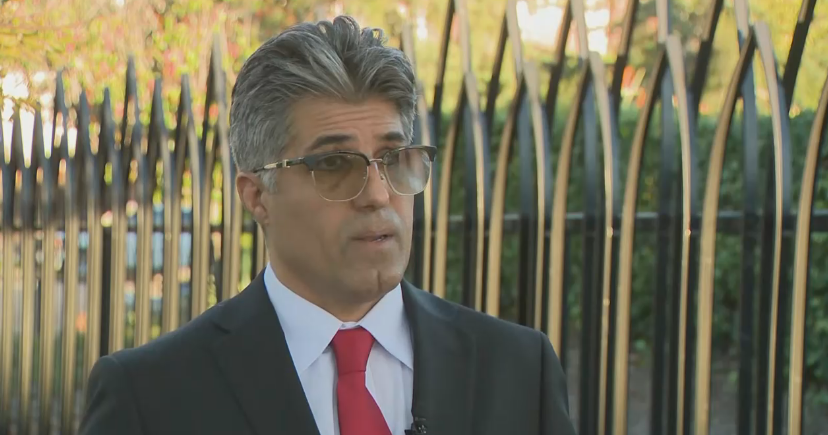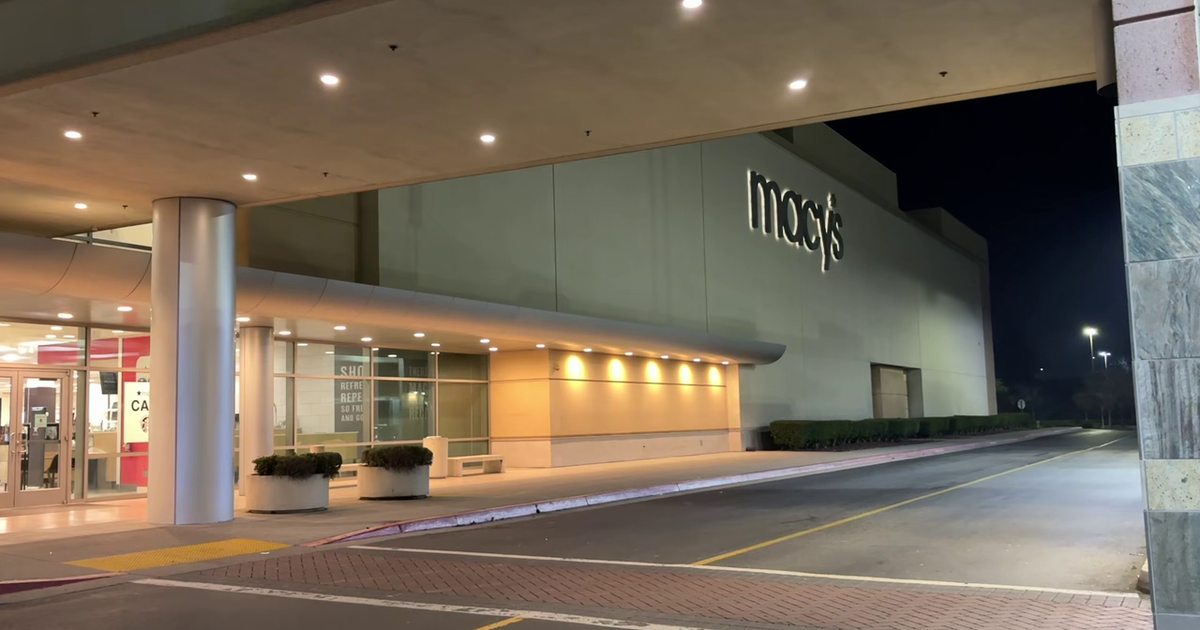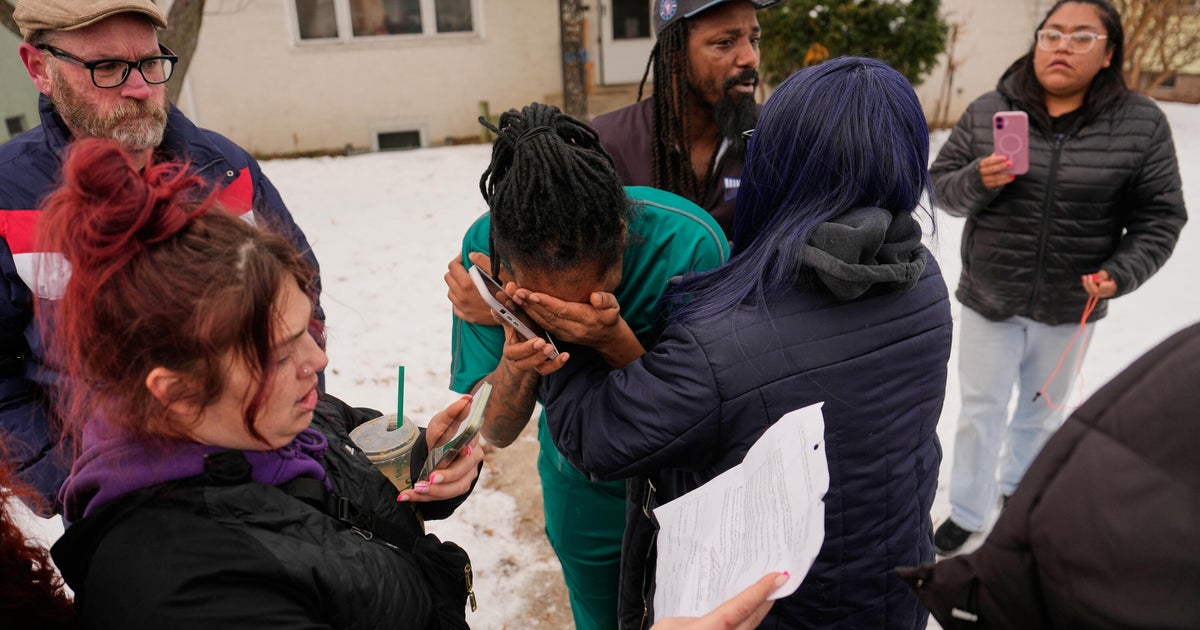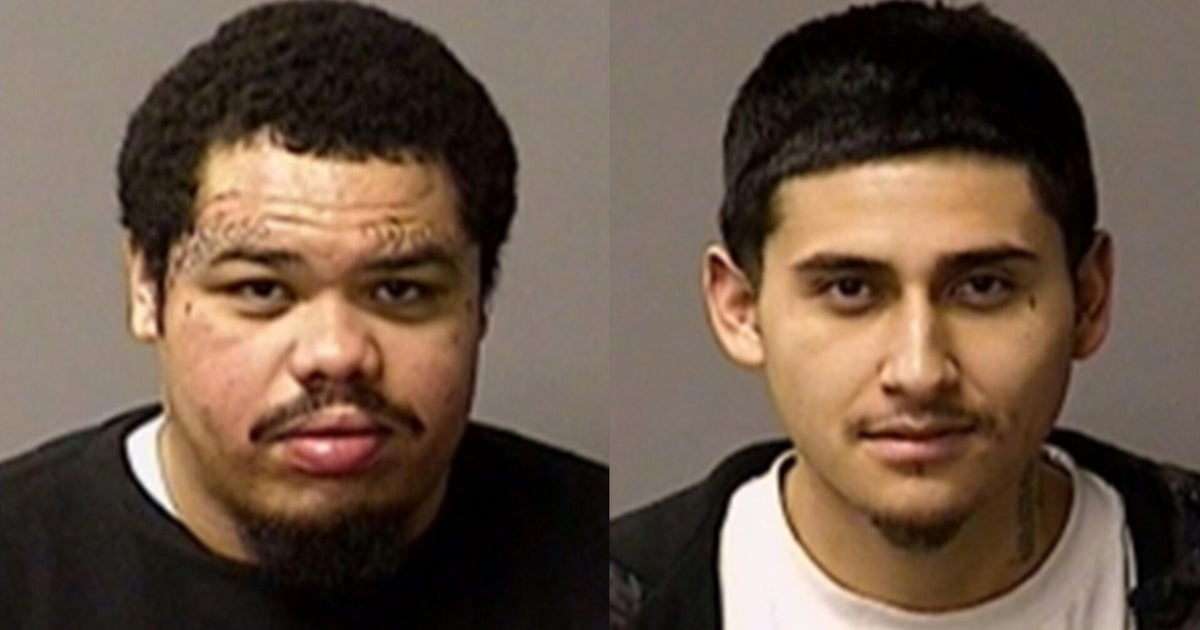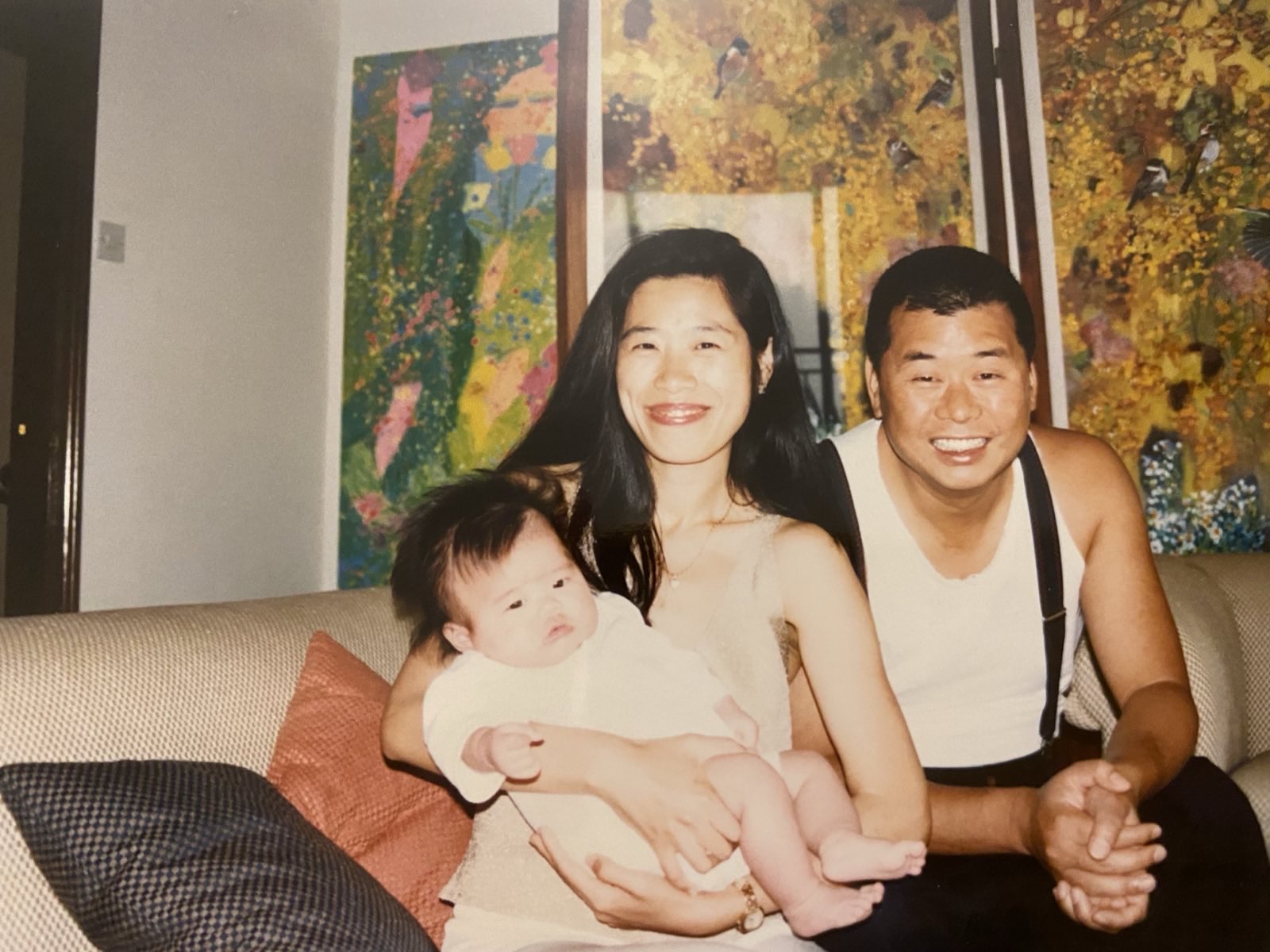Hong Kong pro-democracy movement dealt another blow as organizers of Tiananmen Square vigil arrested
Hong Kong — Police in Hong Kong arrested four leaders of one of the city's most well-known pro-democracy groups on Wednesday. The "Hong Kong Alliance in Support of Patriotic, Democratic Movements in China" is one of few such groups still in existence after two years of crackdown on pro-democracy activists by Beijing.
It has become a household name as it organizes the city's yearly June 4th vigil marking Beijing's bloody 1989 crackdown on protesters in Tiananmen Square.
Critics say the arrests are just the latest erosion of the rights and freedoms that Hong Kong used to enjoy, before Beijing invoked a controversial national security law last year to muzzle criticism of China's central government.
Hong Kong may seem peaceful and normal after the 2019 mass-protests that rocked the city, but critics continue to raise the alarm as democratic institutions built up and enjoyed for decades are still being hollowed out. The last pro-democracy leaders in the city are being targeted, thanks to China's national security law.
The latest evidence of China's full takeover of the formerly-semi-autonomous city came early Wednesday morning as Chow Hang-tung, the vice chair of the group that has long organized Hong Kong's June 4th vigil, was arrested by police along with three colleagues.
On Tuesday, she and other members of the group went to police headquarters to say they would not hand over information sought by the authorities. That included details about the group's membership, financial circumstances and activities.
Chow called on Hong Kongers to keep resisting, and to keep calling attention to what's happening in the city.
The police have accused her organization of being "an agent of foreign forces," which is one of the four big, if vague, red lines in the national security law. The others being secession, subversion and terrorism. Punishment can be up to life in prison.
The June 4th vigil had been a major political event since it was first held in 1990, sometimes drawing hundreds of thousands of people to Hong Kong, and the government and police had always allowed it to happen. I've attended several times myself over the past two decades.
Hong Kong has long been known as the only place on Chinese soil where the Tiananmen Square massacre can be freely commemorated. For the past two years, authorities have banned the vigil, citing coronavirus restrictions.
With the arrest of more of its leaders, the future of the highly symbolic event is even more in doubt. On September 25, the Hong Kong Alliance will hold an extraordinary general meeting, to discuss whether it will disband completely after 32 years.

